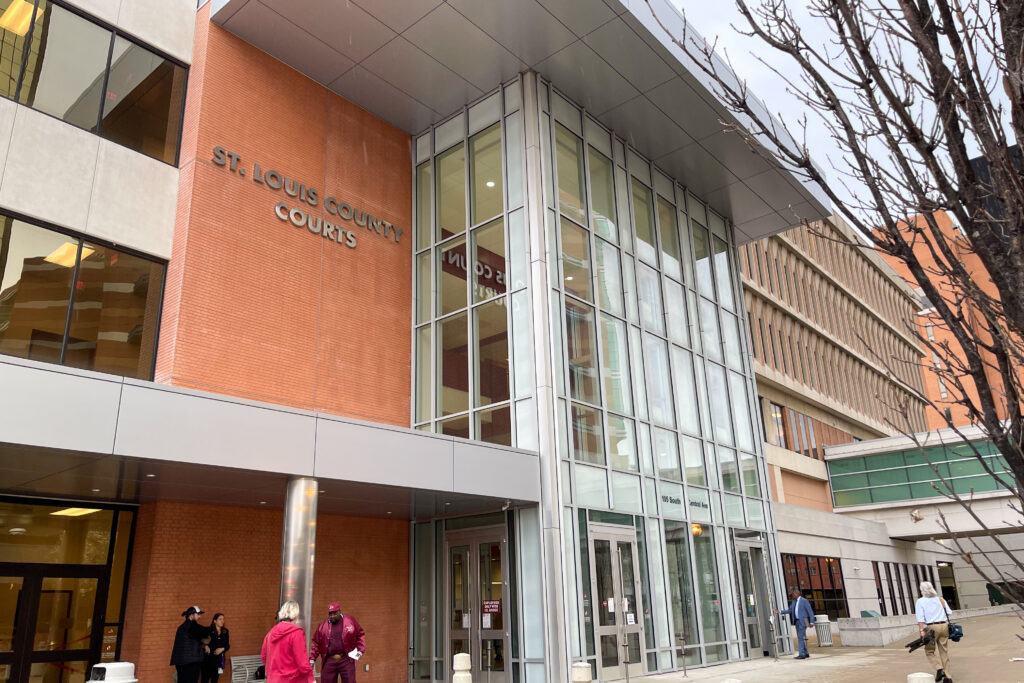Judge blocks Missouri attorney general’s rule limiting transgender health care

Missouri Attorney General Andrew Bailey is still blocked from enforcing an emergency rule limiting gender-affirming care after a St. Louis County judge granted a 14-day temporary restraining order Monday.
The lawsuit, filed by the American Civil Liberties Union of Missouri and Lambda Legal, alleges that Bailey abused the state’s consumer protection law to create the emergency order. If the attorney general is allowed to place restrictions on gender-affirming care, the lawsuit contends, their five plaintiffs will face harm, like possible infertility or not being able to continue medical treatment.
Circuit Court Judge Ellen Ribaudo ruled Monday that plaintiffs proved they would be harmed by the emergency rule, and the court will have to decide whether Bailey could use the consumer protection law, known as the Missouri Merchandising Practices Act, to regulate gender-affirming care.
“This is a novel use of the attorney general’s power to promulgate emergency rules under the Missouri Merchandising Practices Act that has never previously been subjected to judicial scrutiny and may impermissibly invade a function reserved to the legislature,” Ribaudo wrote in her order.
Ribaudo scheduled a hearing for 1 p.m. on May 11 to determine whether the court will place a preliminary injunction, which would stop the emergency rule until the completion of the lawsuit.
The rule was originally scheduled to go into effect last Friday, but Ribaudo blocked it until today to give both sides a chance to make their case regarding a temporary restraining order.
Inside the attorney general’s argument
Solicitor General Josh Divine wrote in a 62-page response to the plaintiff’s request for a restraining order that the emergency rule was inspired by three things: “Emerging international consensus” on potential dangers of gender-affirming care, a growing number of transgender youth and an independent investigation by the Missouri Attorney General into the state’s gender-affirming care centers.
He repeats allegations from Jamie Reed, a former case worker at the Washington University Transgender Center who has lately been asking legislators to ban gender-affirming care for minors.
Reed’s allegations have been countered by Washington University, which denied wrongdoing after an internal investigation, and Transgender Center patients and parents who spoke to The Independent about the care process.
Divine advocates for “talk therapy” in the court filing and alleges that some gender-affirming-care providers skip this step before prescribing puberty blockers or cross-sex hormones. The attorney general office’s argument alleges some trangender people may not want medical intervention after talk therapy.
“Without the benefit of well-established talk therapy, many individuals are chemically transitioning who would never have felt the need to do so had they been guaranteed access to basic talk therapy care,” Divine writes.
Talk therapy is encouraged by the World Professional Association for Transgender Health (WPATH), Divine says, though he cites WPATH’s seventh edition of its standards of care, not its most updated recommendations.
Plaintiff’s argument also leans on WPATH’s standards of care, which are endorsed by the American Academy of Pediatrics, the American Medical Association, the American Psychiatric Association, the American Academy of Child & Adolescent Psychiatry and the US Department of Health and Human Services Office of Population Affairs.
But Divine criticizes WPATH as a “self-described activist organization” with “low-quality evidence,” despite also citing the organization.
His argument refers to international agencies’ critique of gender-affirming care in youth as “the elephant in the room” that plaintiffs don’t acknowledge.
Plaintiffs’ argument instead focuses on the decades of gender-affirming care in the United States.
“The rule fails to explain how medical care that has existed for decades now suddenly constitutes an emergency demanding immediate non-legislative action,” the original lawsuit says.
The ACLU of Missouri and Lambda Legal also note in the original petition that the emergency rule affects adults, despite press releases from the attorney general stating he was intending to protect children.
Divine addresses the emergency rule’s scope by arguing that “talk therapy is beneficial for all individuals.”
“Had the attorney general limited the regulation to 16- and 17-year- olds, plaintiffs no doubt would have attacked it as arbitrary and underinclusive for removing protections from patients as soon as they turn 18,” he also wrote.
The case may come down to whether the attorney general has the authority to enact the emergency rule under the Missouri Merchandising Practices Act.
The ACLU of Missouri and ACLU say the rule oversteps the law’s bounds, but Divine writes that the law covers “medical goods and services.”
“The invocation of the MMPA as authority to implement the emergency rule for the explicit purpose of prohibiting or limiting medical care to patients of any age presents an issue of first impression for the courts,” Ribaudo wrote in her order Monday.
Miss Clipping Out Stories to Save for Later?
Click the Purchase Story button below to order a print of this story. We will print it for you on matte photo paper to keep forever.

